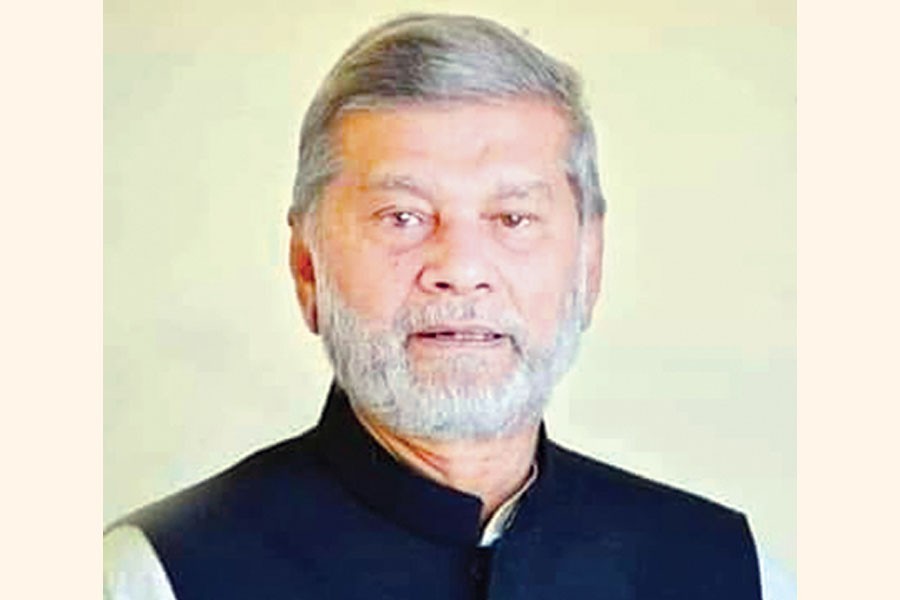
DHAKA, Aug 28, 2022 (BSS) - Planning Minister MA Mannan today said that
the private sector, government and academia should join hands to develop
human capital in the country.
The Planning Minister was addressing as the chief guest at the unveiling of
the Labour Market Studies for Skills for Employment Investment Program
conducted by the Bangladesh Institute of Development Studies (BIDS) held at a
city hotel.
He said that the government was working on education to make it demand
driven.
The minister also said that there was no conflict between development and
good governance.
"Both development and good governance are necessary but I will say
development should be the first priority than governance," Mannan said.
Speaking on the occasion, BIDS director general Dr Binayak Sen said that
skill was not a constraint for Bangladesh in achieving economic growth
exaltation as there were many scope for the country to go forward with low
skills through RMG sector, agriculture and expatriate workers.
"Now skills in Bangladesh are graduating to a higher level and I think the
availability of higher skill can be a binding constraint for Bangladesh for
next one decade. And it is one of the impressive messages of the study,"
Binayak said.
Planning commission member Mohammad Emdad Ullah Mian said that coordination
among the corporate culture, corporate governance and the government policy
was important to reap the benefits of demographic dividend.
Dhaka University economics department professor Sayema Haque Bidisha said
that skill training would not bring required results without ensuring quality
education in all levels.
She suggested conducting another study on how to establish synergy between
skill development policy and industrial policy.
Gonoshasthaya Kendra founder Dr Zafrullah Chowdhury said that the government
should adopt a policy to train unemployed educated youths in the country to
tap the immense potential of employment at elderly care facilities abroad.
The study findings said average skill gap in 10 industrial sectors is about
30 per cent and the gap increases with the level of technological
sophistication of the sectors.
The report suggests that training programs were needed to gradually move
towards technologically sophisticated industries as the skill gap was higher
for the professionals and technical persons.
SEIP project of the finance ministry has commissioned BIDS to conduct a study
of the labor market on skill demand, supply and mismatch.
Kazi Iqbal, senior research fellow of BIDS presented the findings on 10
sectors including agro processing, health care, hospitality and tourism, RMG
and textile, constructions, leather, light engineering, shipbuilding and
electronics.
Study found that the share of workers with training in 10 sectors in a year
was 1.35 per cent which was lower than the national average of 3.65 per cent.
Citing the present scenario of the readymade garment sector, the study said
that female workers were more proficient than male workers in female dominant
industries and skill gap was also found to be higher for senior level
technical positions.
The study covered 117 agro processing enterprises with 41,546 employees and
found a total export to output ratio per enterprise around 3 per cent.
Study report said that higher skill gaps exist for higher paid jobs like
managers and professionals.
The study revealed that 53.74 per cent of surveyed RMG factories have been
facing skill gaps in general.
In terms of categories, skill gaps faced by enterprises are as follows:
lockstitch machine operator (74.65 per cent firms), flatlock machine operator
(72.31 per cent firms), overlock machine operator (66.99 per cent firms),
printing machine operator (66.67 per cent firms), quality inspector (64.91
per cent firms), chain stitch machine operator (63.48 per cent firms),
embroidery machine operator (62.50 per cent firms), iron man/woman (60.3 per
cent firms), quality controller (57.23 per cent firms) and feed of the arm
machine operator (56.64 per cent firms).
Evidence from service sector like tourism and hotels suggested that soft
skills can be taught. Hence it should be a part of the training program.
Massive investment in skill development is required to sustain higher growth,
the study recommended.
It said that alignment of education and skill development policies with
industrial policy was important to shorten the skill gap.